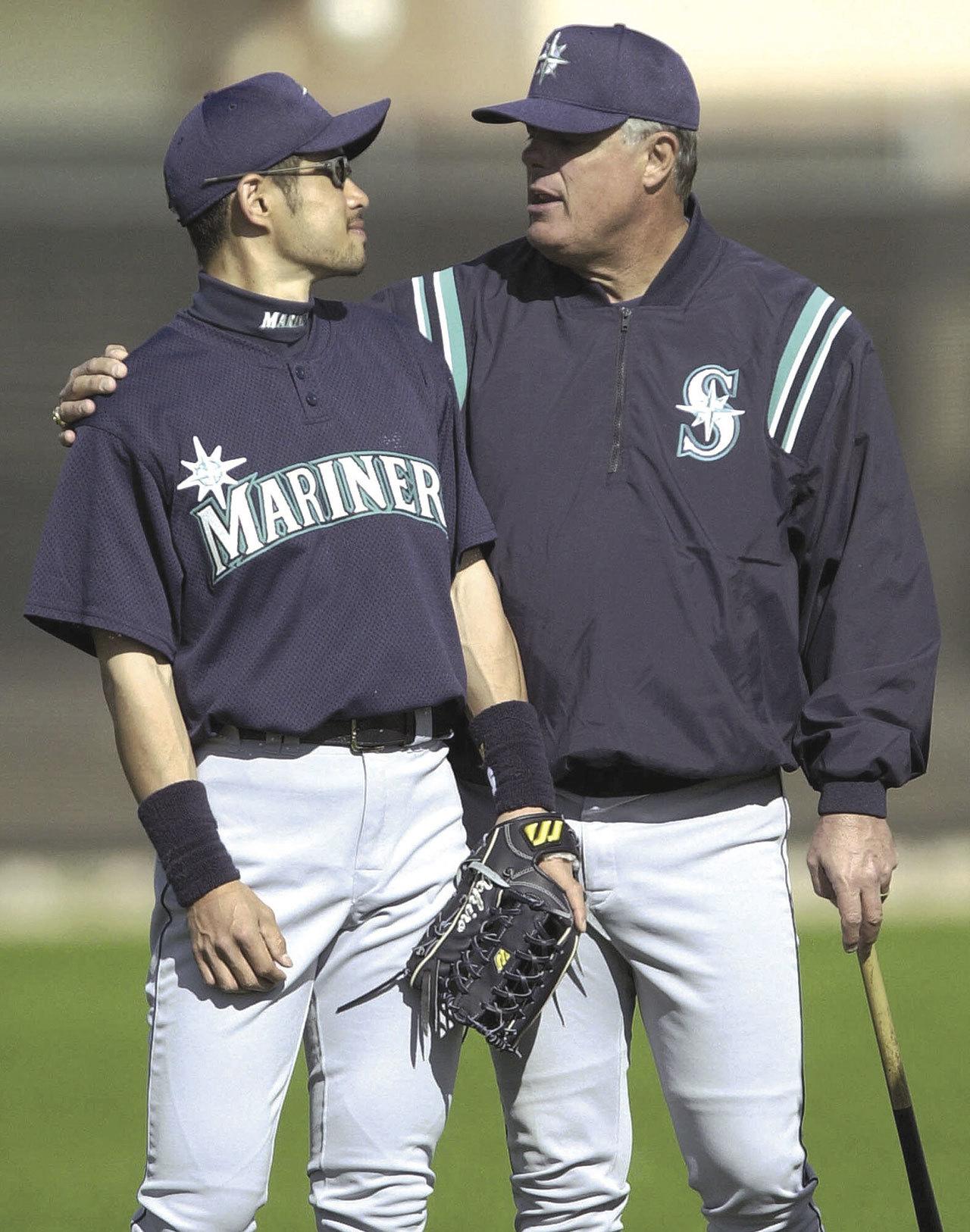By Janie Mccauley
The Associated Press
Still unsure exactly what to expect from the Japanese newcomer, Lou Piniella kept waiting for the rookie to pull a ball. Too many hits sprayed to left field, Sweet Lou thought, too easy for defenses to adjust.
So the veteran Seattle manager summoned the translator and told him to deliver a message to Ichiro Suzuki: “I want to see some bat speed.”
Piniella saw them huddle in the dugout and share a laugh. A couple of innings later, Suzuki led off with a home run into the bullpen in right-center.
“He rounds the bases, he steps on home plate, and he says, ‘Happy now?’ when he shook my hand,” Piniella recalled.
“I said, ‘Yeah, yeah, you can do whatever you want.’”
All these years later, with Suzuki on the verge of joining the 3,000-hit club in the big leagues, his first skipper in the majors is taking a lot of pride in watching the pursuit.
As much as Piniella believed in Suzuki from the start and was in awe of those early accomplishments with the Mariners, he never would have guessed the outfielder would still be playing at age 42 and going for such a lofty perch.
Suzuki hit .335 with a .412 on-base percentage in 164 at-bats over the first half with Miami.
He had 2,998 hits as of Sunday.
Now gray-haired and no longer a regular in his 16th major league season, Suzuki might have lost a step, but not much.
Credit his commitment to an intense regimen that has long included an on-deck routine that features a deep warmup squat, then a one-of-a-kind stance and a sweeping twirl of his bat.
Suzuki was 27 and had 1,278 hits in Japan before he came to the big leagues. Piniella got so excited after Suzuki’s two-hit debut in 2001 that he kissed him.
“I was so happy for him, that’s why,” Piniella said.
“It’s hard for a player to come here from Japan, especially with the scrutiny that he had.
“I’m an emotional guy. I got caught up in the moment. I gave him a hug and at the same time I gave him a little peck.
“Look, I really enjoyed watching this young man play and I knew from seeing him in spring training that he was a special player.”
At the time, Suzuki did not come cheaply. Seattle paid $13 million just to secure his rights, and signed him to a three-year, $14 million contract. The Mariners got their money’s worth and then some.
Suzuki, better known just by his first name, has long prided himself in preparation.
So much so that Piniella had been around no other player like him, with that meticulous stretching before stepping into the batter’s box to the foot rubdowns he gave himself at his locker with a small wooden tool before and after games.
“I had never seen it, quite frankly. I was quite amazed by the things that he did, the stretching especially,” Piniella said.
“Here in the United States, we go through a rigorous spring training, but once the season starts prior to the games we have our stretching exercises and then the kids play.”
“He took it to a totally different level. He was fanatical about that and that’s probably one of the big reasons that he’s playing here at age 42,” he said.
That first season was a memorable one for many reasons.
The Mariners won an AL-record 116 games, clinching the division shortly after the Sept. 11 terrorist attacks.
Yet Seattle failed to reach the World Series, losing in five games of the AL Championship Series to the Yankees.
Still, Suzuki won AL Rookie of the Year and MVP. Suzuki’s ability to beat out infield hits at times left Piniella shaking his head.
“He did have a special year. The team had a special year that year,” Piniella said.
“We won 116 games and Ichiro was a big part of it. Ichiro was a special player. He had really good speed, he had that uncanny ability to put the ball in play.
“In the outfield, he played as well as you can expect, great throwing arm.
“He made the adjustment to American baseball very quickly, became one of the leaders in our clubhouse and was accepted by the players. He had a tremendous impact on our team that year.
“He’s going for his 3,000th hit now, and I’m so proud of him. He’s had just a wonderful career. I look forward to the time when he’ll be inducted into the Hall of Fame,” he said.
Some of the most memorable hits by the 10-time All-Star didn’t even count.
In 2007, Suzuki hit the first inside-the-park home run in All-Star game history, winning unanimous MVP honors and helping the American League to a 5-4 victory at San Francisco’s AT&T Park with a go-ahead, two-run drive that took a crazy bounce off the right-field wall.
He’d never hit an inside-the-park homer during his decorated career in Japan.
“He’s an amazing guy,” Marlins manager Don Mattingly said.
“You just take age out of the equation and if you just looked at him as a player, if you evaluated just what you see, not thinking about age, you see a guy that runs above average, plays all three outfield spots, throws above average, hits lefties and righties.
“His work habits and everything else, for me, just set him apart.”

